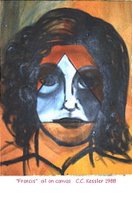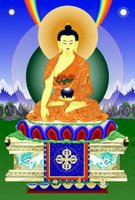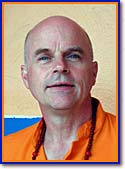 It's been a busy time, for no particular reason. The holiday rush is over, no extreme deadlines at work, no birthdays or family rituals to prepare for, nothing unusual happening or scheduled in the near future. Yet, I feel busy.
It's been a busy time, for no particular reason. The holiday rush is over, no extreme deadlines at work, no birthdays or family rituals to prepare for, nothing unusual happening or scheduled in the near future. Yet, I feel busy.
Most days consist of rising at 5:30, drinking coffee, eating breakfast, watching the news, watching one or two television programs I have tivo'd, feeding and caring for the young dogs, checking and writing email, and looking at my calendar for appts. Weekdays I get ready for work and usually leave by 9:10.
My commute to the office is a big 2 miles, door to door. If I am visiting one of our Head Start centers the commute can grow up to 1 1/2 hours one way depending on which county I visit. When in my office my day consists of a variety of tasks, including email, coordination of assessments, evaluation of assessment data, phone calls, trouble shooting questions and problem solving with two software programs I oversee staff use of, data collection and reporting on enrollment and federal matching funds, staff training, and occassional special projects. The majority of the time these tasks are done at a leisurely pace. Lunch times are more often than not spent with my friend Lori. When not together at lunch I can usually be found at the library or bringing Taco Bell into Barnes and Noble where I eat lunch and read. I generally leave work between 5:30 and 6:00.
Several times a week I stop at the food market on the way home. Once home I do a limited amount of chores: feed the dogs, let them out, change my clothes, put away groceries, and assess preparation for dinner. Frankye and I talk and watch the evening news. Depending on how long dinner preparation takes, I begin cooking for an estimated 7:30 dinner time. After dinner, unless there is something that must be done, I am in relax mode. I mostly watch TV with Frankye and read a newspaper or magazine, write in my journal, sometimes paint thumbnail paintings, play with the dogs, or, more often than I care to admit, play games on my laptop. I head for bed anywhere from 9 - 10:00 and after getting ready for bed, I read until too sleepy to do so, usually between 15 to 60 minutes. I usually sleep about 6 hours. I never set an alarm clock. I wake up when I'm done sleeping.
Weekends are usually less busy, unless there is a special event or project planned. I attend Sangha (Buddhist practice sessions) most Saturday mornings from 10 - 1:00. I sometimes have a board obligation or work I must do as Treasurer of the Tibetan Buddhist center I belong to. That is the only consistent obligation I have on weekends. I always try to schedule time in my art studio to work on paintings. When I'm lucky and smart about my time and energy I am able to spend time both Saturday and Sunday in my studio.
Frankye and I almost always spend time with our good friends Christie and Sue (aka wsahn and Q) on weekends. We eat together a lot. Their house, our house, restaurants. It doesn't matter. We like to share meals. We go to the movie with them more often than with any one else and we visit local bookstores for coffee, browsing, and chatter. We laugh a lot with Christie and Sue, and miss them if schedules don't allow at least one get together a week.
Looking back on what I've written I think the title of this blog is a misnomer. It's not busy time, it's Rich Life. I have and enjoy a rich life with people I love and enjoy. Not all the people I love and enjoy, but my daily life includes at least some of the people I love and enjoy. Everyday.


















